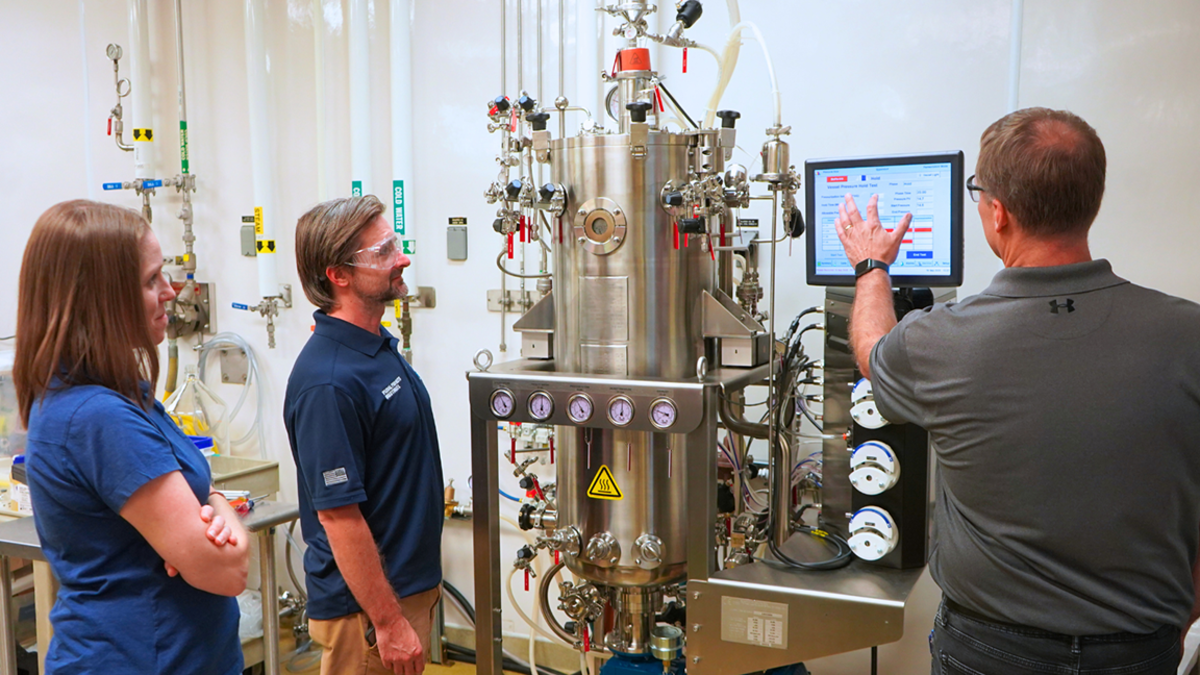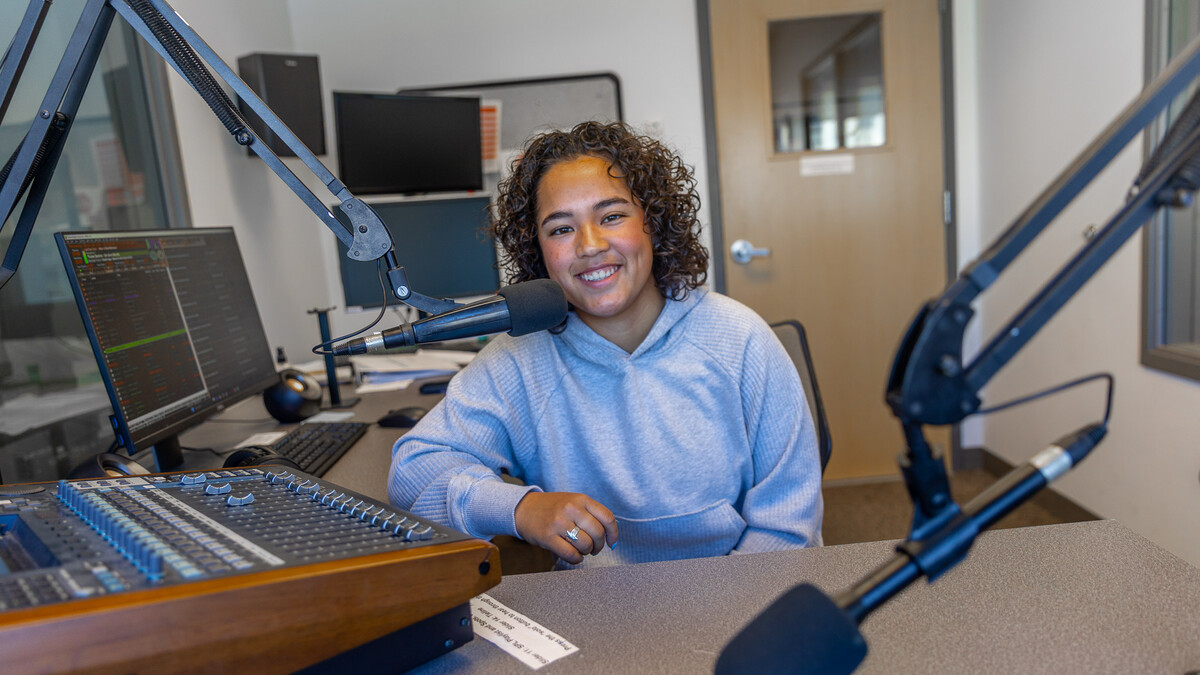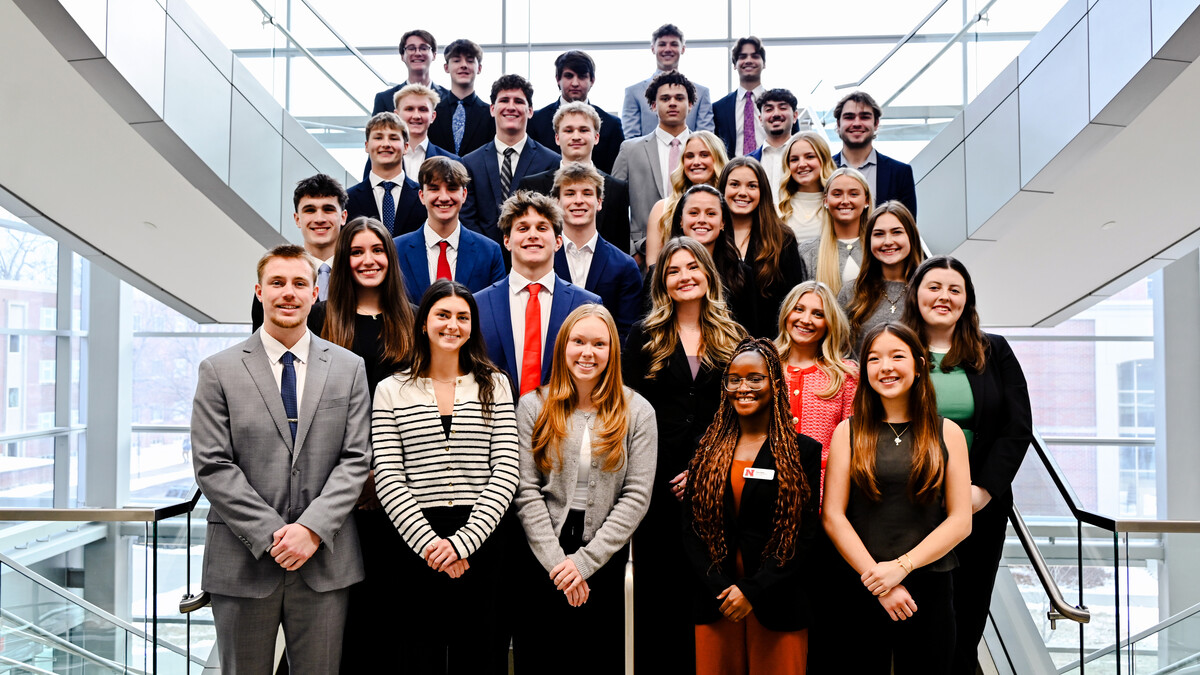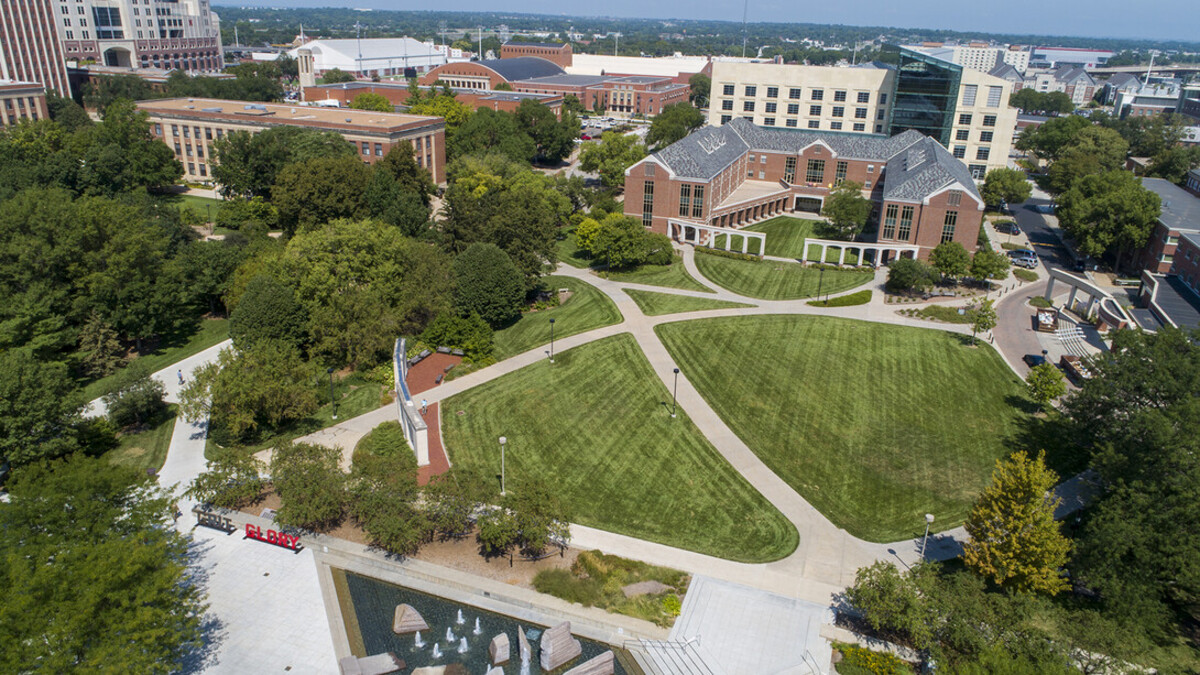
Prior to last year, climate change might have seemed like a distant thing of the future to most Nebraskans.
Historic flooding in March 2019 shattered that illusion — and inspired a team of students and faculty based out of the University of Nebraska–Lincoln’s College of Journalism and Mass Communications to take action.
The college's latest depth reporting project, Climate Change Nebraska, takes a comprehensive look at how the world’s warming climate is affecting the state. Over the past three semesters, students have covered topics such as public health, water conservation and management, agriculture, the economy, national security, politics and religion.

“The bomb cyclone was the fuse that lit this class off. That had a tremendous impact on all corners of Nebraska. It destroyed dams, highways, cattle, homes and people’s lives,” said Joe Starita, professor of journalism and the project’s director. “At the time it hit, I was bottle feeding my little baby granddaughter. I kept looking at her and seeing how contented and calm and safe and secure this four-month-old child was, and I kept thinking, I don't want that to be an illusion. Maybe we can do something for all of these young people who are going to bear the brunt of our inaction right now.
“I think as a general rule, the best way to handle an issue that has you concerned or has you worried or has you afraid is to attack it and do something about it. We decided to go after it with a lot of energy and a lot of determination.”
One of the project’s strengths, Starita said, is its unique interdisciplinary focus.
“With this project, we’re doing something that has never been done in the history of the journalism college," he said. "Instead of doing a depth project by drawing upon just journalism majors, we wanted to invite students from the entire campus who could view this through multiple lenses and bring each of their individual talents to the classroom. Last spring, instead of 20 journalism majors, we had 20 students representing seven different colleges and 13 different majors.”
Like any good journalists, students have made a point to interview Nebraskans on both sides of the climate change argument, including scientists, ranchers, policymakers and faith leaders. However, the team is approaching their reporting from one unified angle: Climate change is real, and it’s not going away.
“One thing that we always talk about internally is if we should use the word ‘climate change,’ because it's just so politicizing. We’ve gone forward with ‘climate change’ because we can't say anything else,” said Jenn Sheppard, assistant professor of practice and co-director of the project. “That, I think, is the first step to getting across party lines — just continuing to emphasize that this isn't a belief system, it's a fact.”
View this post on Instagram
A post shared by Climate Change Nebraska (@climatechangenebraska) on Mar 9, 2020 at 8:56am PDT
The students’ reporting is already attracting national attention. In August, author and environmentalist Bill McKibben featured a Climate Change Nebraska story on eco-anxiety, written by sophomore political science major Aila Ganic and senior environmental studies major Kayla Vondracek, in a column in The New Yorker.
“It was just kind of surreal,” Ganic said. “Definitely, the first day I walked in, it's not what I was ever imagining to happen.”
Lindsay Johnson, a third-year doctoral candidate specializing in climate assessment and impact, said speaking with Nebraskans on the issue of climate change has given her hope for the future.
“There may be deniers, but there's a lot more people out there who are trying to do something about it,” Johnson said.
Along with publishing stories on the Climate Change Nebraska website and in local media outlets, the team is also working to incorporate their findings into curriculum across the state.
“We've been hitting it really hard lately, talking to all the state ag boards, the Department of Education and local teachers just trying to promote our project and our content,” Sheppard said. “One thing I'm really pumped about and eager to get going is integrating some of our content into K-12 classrooms. We want to organize a printed magazine that will serve as a textbook for public schools in Nebraska.”

As the longtime instructor of the college's depth reporting class, Starita is proud of the stories his students are telling, and he encourages anyone curious about the topic of climate change to visit the project website.
“This is useful information that college students are giving to the public for free,” Starita said. “These students are extraordinarily inspired to work hard, open their veins and bleed all over the keyboard because they have more to lose than anybody else. They’re working very hard to try and move the needle on climate change in a direction that is very educational and very inspirational.”







